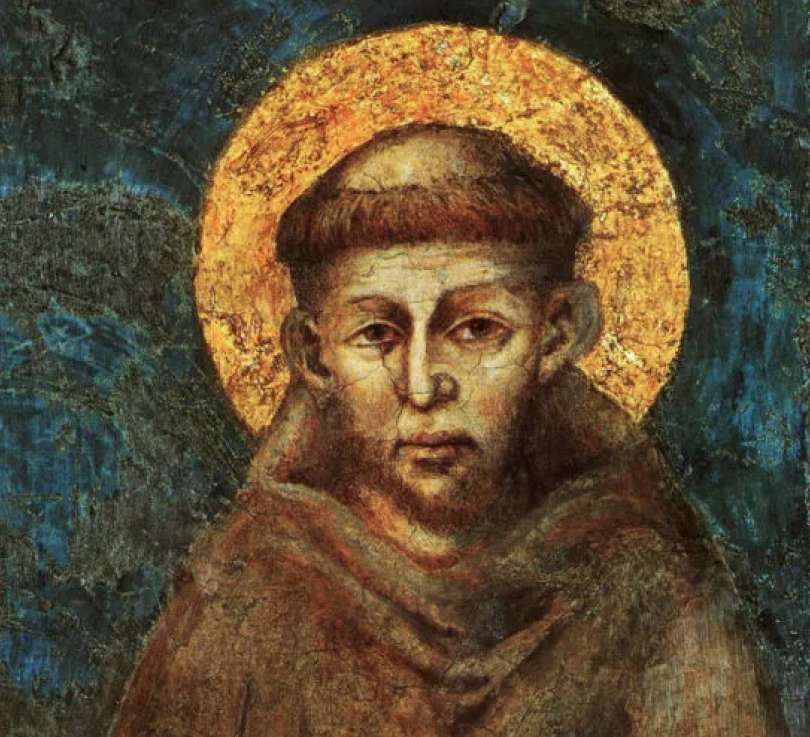
Saint Francis
Photo: ofm.org
ROME, September 30, 2022 / 6:00 PM (ACI Print) .-
“Our Lord in those who love him to serve him well allows there to be some defects”. She affirmed it sto Giuseppe da Copertino. A wise thought drawn from experience which, however, constantly eludes us. “When will we be convinced that our fragility is not in itself a contraindication in the path of holiness? Which takes its cue from the acceptance of our creatures not as condemnation or, worse, guilt, as if the Creator had sadistically amused himself towards us, but as an opportunity and object of God’s gratuitous and disinterested love. Who does not ask us to replace him, but to allow ourselves to be loved “. And here comes the prayer: “Oh God, you already exist! Allow me to relax and let you do it …”.
A small example taken from the Small Franciscan Breviary, published by the Messenger Editions of Padua, conceived and edited by Don Fabio Scarsato. We are on the eve of the feast dedicated to St. Francis and a book like this represents a “corroborant” for the spirit and for our life of faith, to be taken in small daily doses, possibly it is particularly indicated in the morning, before heading to the our daily commitments. And it is also an extra help to penetrate the world and the spirituality of Franciscanism, an inexhaustible heritage of the witness of Francesco and Chiara of Assisi. In book bRevi citations introduce short meditations and updated prayers, to accompany the reader day after day, for a whole year. Authors and authors, friars and nuns, priests and simple laity, famous or unknown, among the first to enter the ranks of the Franciscans and among those of our times, young or old, who have left more or less written traces of their spiritual life: precious testimonies of the abundant richness of Franciscan spirituality.
A help also to defeat the sense of loneliness or loss, which in our troubled days are lurking more than ever ready to attack us. Recalling the joy that Chiara and Francesco lived every day can represent a valid antidote to the sadness that assails us in facing the problems that contemporary life accumulates all around. From the Small Breviary we can trace the source of Franciscan spirituality: The foils, a anthology on the life of the saint and his disciples, written by Ugolino da Brunforte. The first section, introduced by a preface, deals with the birth of the Franciscan order, with the life of the saint, highlighting his qualities and the perfection of his sermons as well as dealing with the accomplished facts of the first generation of friars. The second section continues to tell the evolution of the order, that is, the events that characterized the friars of the Marche, spanning a century and more of history.
Some chapters of the work represent complete hagiographies that dwell on exemplary characters as in the chapters that tell of frate Bernardo, Leone, Masseo and Chiara. We can thus immerse ourselves in the Franciscan world that emerges vividly from this narrative, with a fairytale and poetic aura. At the center of the narrative is Francis, a coherent example of an evangelically Christian life, founded on the values of humility, charity, love of God, renunciation of the goods of the world and fraternal communication with all men and with all creation. .
One of the most striking episodes, which are most impressed in the memory is perhaps the one that sees the saint and brother Leo as the protagonist, (whom Francis calls the “sheep of God”). They are on the way, probably tired and hungry, and Francis takes the opportunity to reflect on the meaning and form of ‘perfect joy’. What is perfect gladness? And Francis explains that being happy is not a question of being in favorable, pleasant, safe conditions. Far from it. Anything could happen, any misfortune, but perfect happiness is not undermined. Could be caught by the storm, they might be chased away in asking hospitality, driven back into the night, slandered, forced to face difficulties of all kinds. But they would still be happy, because they support penalties and tribulations in the name of Christ is the total fulfillment of life; as he explains again, “she works all the graces and gifts of the Holy Spirit, which Christ grants to his friends, it is to overcome himself, and willingly for the love of Christ to bear pains, insults and opprobriums and hardships; for in all the other gifts of God we cannot boast, because they are not ours, but God’s; hence the Apostle says: What do you have that you do not have from God? And if you got it from him, why do you glory as if you got it from yourself? But in the cross of tribulation and affliction we can glory, for this is ours; and therefore the Apostle says: I do not want to glory, if not in the cross of our Lord Jesus Christ “.
Pages that give comfort, not easy anti-stress recipes, as today people are struggling to distribute, and not even consoling analyzes of self-awareness, with false messages such as: everything you want to be and want to do can be realized. No, through the life and messages of Francis and of all those who over time have chosen him as a model and inspiration, we are shown a long, tiring, painful way, the way of the Cross, but also the way to become authentic and truly free. .
Fabio Scarsato, Small Franciscan Breviary, Edizioni Messaggero Padova, pp. 254, euro 14
I fioretti di San Francesco, Porziuncola Editions, pp. 164, € 7.60
Readings, St. Francis and the Franciscans in a ‘breviary’ to be read every day


